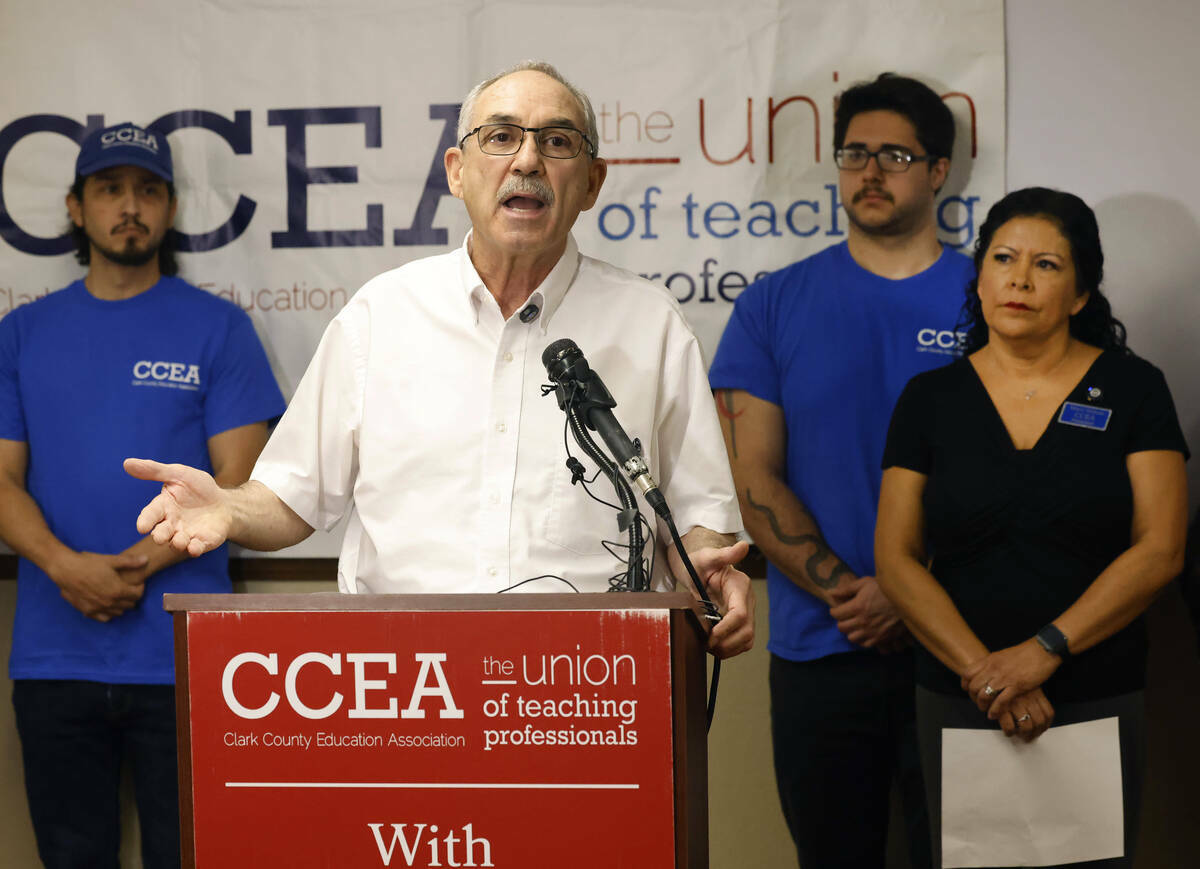VICTOR JOECKS: CCEA to blame for CCSD’s budget problems
You wouldn’t believe a fox that acted upset about missing chickens. You should have the same reaction when the Clark County Education Association complains the Clark County School District is short on money.
The district recently sent schools updated budget information. As a result of the new teacher contract, the cost of the average teacher increased by $5,700 more than projected. That came as a surprise to principals, who build site-based budgets. Schools don’t pay the actual amount their teachers make. The district calculates an average teacher cost, and principals use that number when they hire teachers.
If a school has 30 teachers, the unexpected shortfall would top $150,000. Ouch.
Last week, the district fired Jason Goudie, who served as the district’s chief financial officer. Former superintendent Pat Skorkowsky hired him in 2017. The district didn’t say why it fired Goudie, but it strongly implied that he did something wrong.
That’d be surprising, because Goudie did an excellent job. Before he started, the district teetered on the brink of insolvency, with an ending fund balance of $18.2 million. It now has almost $150 million saved. That’s a major accomplishment, even if it seems mundane to most people.
CCEA piled on, claiming Goudie’s firing was part of the district’s “culture of cover-up and mismanagement.” It wasn’t enough to fire Goudie, the “problem goes deeper,” it said.
It does go deeper — just not in the way the union wants you to believe.
In an interview, Goudie detailed what happened. Last year, the district and union were locked in a bitter contract dispute. But state law requires the district to provide principals with an “average unit cost” for teachers and other employees by Jan. 15. This forced Goudie and the budget team to estimate how much teacher pay would increase in the 2023-24 and 2024-25 school years.
Now the district and union did reach a contract agreement in late December. The district capitulated. It gave teachers a massive 10 percent first year pay increase and 8 percent hike the second year, plus other compensation increases. The contract wasn’t formally approved until late January. Given the size and complexity of the district’s budget, it wasn’t possible to fully rework the forecasted numbers before the Jan. 15 deadline.
At the time, CCEA executive director John Vellardita bragged the contract would cost the district more than $750 million. In 2016, the district and union agreed to what was then a massive new contract. Its price tag was under $140 million. In 2019, a new contract cost the district around $190 million.
The difference between this contract and past ones is obvious. That’s what led to the January estimate being so off.
“Every single year, there’s an adjustment,” Goudie said. But it’s usually “insignificant.” Often the second year of a contract will give a 2 percent raise or so, he said. Principals could absorb the difference.
In other words, the union is upset at the consequences of the pay increase it demanded.
The average teacher now costs the district more than $120,000 a year. Taxpayers aren’t getting their money’s worth. To distract the public, the union is attacking the district for a problem it caused.
Contact Victor Joecks at vjoecks@reviewjournal.com or 702-383-4698.
The original version of this story misstated who hired Jason Goudie.























